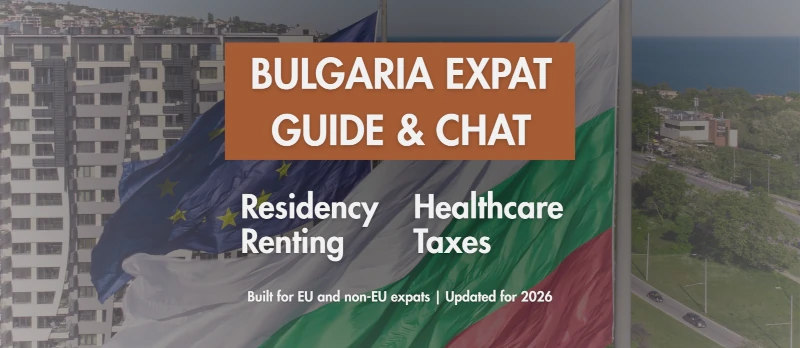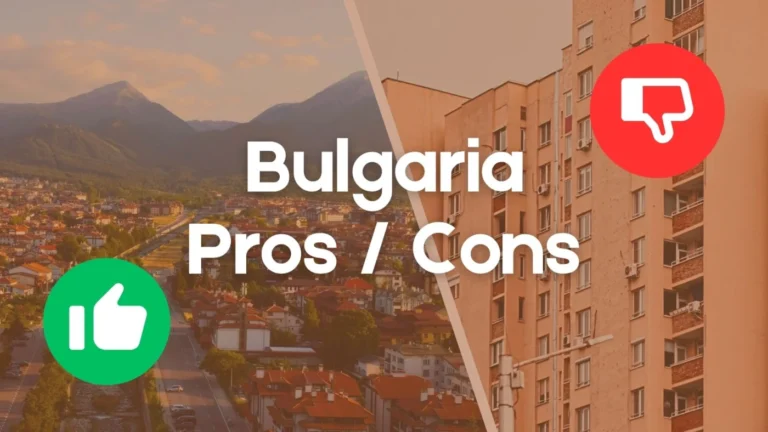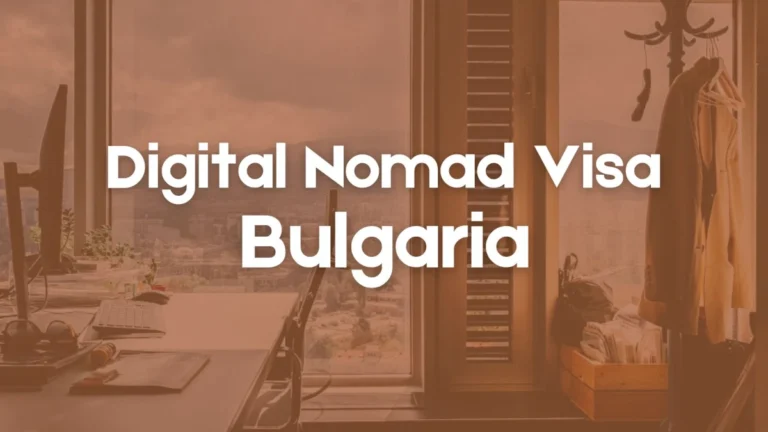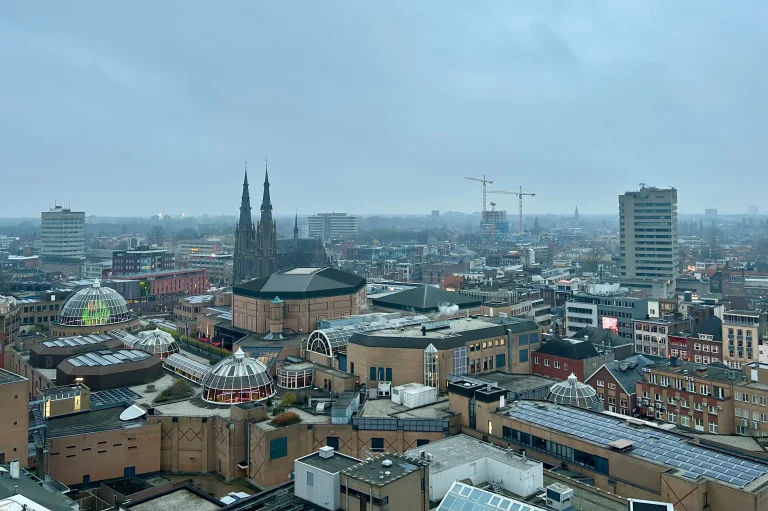If you’re an EU citizen thinking about getting residency in Bulgaria, you’ve probably heard it’s easy. No visas. No consulates. Just show up and register, right?
Yes and No.
The Bulgaria residence process and requirements for EU citizens is faster than for non-EU applicants—but it’s not automatic. You’ll still need to deal with:
- A list of documents that aren’t always clearly explained
- Local offices that operate differently from city to city
- Health insurance rules that confuse even long-term expats
- Several visits to the migration office where people speak little to no English
I’ve been through the process myself—and now I help others avoid the same headaches that can delay your Bulgarian residence card by weeks or force you to start over.
Looking for how to move to Bulgaria as an EU Citizen? I’ve helped other foreigners through this process.
→ Download my FREE Bulgarian Residency Checklist (includes documents needed for EU citizens)
→ Get the Bulgaria Relocation Guide + Expat Q&A Chat (Lifetime Access)
→ Or let me help you with getting a Residence Permit in Bulgaria
Let’s start with who qualifies.
Bulgarian Residence Permit for EU Citizens: Who Can Apply?
If you’re a citizen of the EU, EEA, or Switzerland, you have the legal right to live in Bulgaria under the EU freedom of movement laws. That means you don’t need a visa to enter—but if you want to stay longer than 90 days, you’re required to register your residence and apply for a Bulgarian residence card.
This card isn’t just a formality. Without it, you’re still seen as a tourist—even if you’ve rented an apartment, set up utilities, or plan to stay long term. And while the process might sound simple, this is where many first-time applicants get stuck.
You need to show:
- That you live at a real address in Bulgaria
- That you have access to enough money to support yourself
- That you hold valid health insurance
Read More: Best City in Bulgaria for Digital Nomads and Remote Workers (2026)
Sounds straightforward. But here’s where things go wrong:
Some people assume they can use any rental agreement—only to find out that it’s not enough. Others bring the wrong kind of insurance or forget to print certain forms in Bulgarian. Some are turned away simply because they didn’t bring copies of their documents. And almost everyone is surprised by one specific document the migration office expects—but never clearly explains in advance.
These are the kinds of missteps that can send you back home empty-handed, or worse, cause delays that push you past your legal 90-day stay.

Stuck in research mode?
Where to live?
Which documents do you need?
Do you register as a freelancer or as a company?
How to pay taxes?
Is Bulgaria even the right choice for you?
I’ve been there.
That’s why I created this Chat & Guide — so you don’t have to spend weeks in research mode, guessing your way through bureaucracy, or worrying about mistakes that could cost you time and money.
Bulgaria Residence Process: Step-by-Step Timeline for EU Citizens
Once you arrive in Bulgaria, your first 90 days are visa-free. But if you plan to stay longer, you’re legally required to register your stay and apply for your Bulgaria residence card. It must be done through the local Migration Directorate.
Step 1: Secure a Residential Address in Bulgaria
You’ll need to live at a real address—not a hotel, not an Airbnb, and not just “planning to move.” This is one of the biggest stumbling blocks for new arrivals. Not all leases or landlords will qualify for registration, and many applicants find this out too late.
If you’re unsure whether your current rental situation qualifies, this is something I cover in Bulgaria Expat Guide — because yes, your address setup can absolutely delay or block your application.
Step 2: Gather Your Required Documents
At minimum, you’ll need:
- Your EU passport or national ID
- Proof of address in Bulgaria
- Proof of health insurance that covers you in Bulgaria
- Proof of income or sufficient financial means
- A filled-out residency application form (in Bulgarian)
- Passport-sized photos
You must also bring copies of some of the documents, some also notarized. The migration office will not make copies for you. You can get them done at several small shops nearby.
This is another common pitfall—people bring originals only, or don’t have their documents translated into Bulgarian where required. In some cases, an officer may accept partial paperwork. In others, you’ll lose your place and have to start again from scratch.
Step 3: Visit the Migration Office
There is no online portal. You must appear in person at the Migration Directorate that covers your district (in Sofia or another city). Offices typically have strict hours and limited English. In Sofia, you’ll take a number and wait to be called—often for hours, depending on when you arrive or how busy it is that day.
This is where many people are caught off guard:
- Staff may not speak English
- Officials may reject documents without much explanation
- You may be asked for something you didn’t know was required
The experience can feel intimidating, especially if you’re unprepared. Some applicants describe being rushed, misunderstood, or even yelled at.
That’s why I always recommend preparing everything in advance and, if needed, bringing a Bulgarian-speaking friend or assistant. Inside my relocation support services, I offer in-person help for this exact reason—because not everyone has the time to visit Migration office several times and wait for hours just because you didn’t have a copy of the document.
Step 4: Receive Your Bulgaria Residence Card
If your application is accepted, you’ll be issued a document telling you when to return to collect your residence card (лична карта). This usually takes 3 to 30 working days, depending on the service speed you choose.
The card is valid for five years and serves as your official ID in Bulgaria.
Next, we’ll cover what documents trip up most applicants—and what to double check before you go.
Bulgaria Residence Permit Requirements: What Documents You Actually Need
One of the biggest reasons EU citizens get turned away at the migration office is simple: they bring the wrong documents—or not enough of them.

Stuck in research mode?
Where to live?
Which documents do you need?
Do you register as a freelancer or as a company?
How to pay taxes?
Is Bulgaria even the right choice for you?
I’ve been there.
That’s why I created this Chat & Guide — so you don’t have to spend weeks in research mode, guessing your way through bureaucracy, or worrying about mistakes that could cost you time and money.
On paper, the Bulgaria residency requirements look clear. But in practice, different offices apply them differently, and officers may expect more than what’s officially listed. Here’s what you’ll need to prepare—and where most people go wrong.
1. Passport or National ID
Bring your original EU passport or national identity card, plus a photocopy of the photo page.
Mistake to avoid: not having a copy. The migration office does not make copies for you, and a missing photocopy can get your application rejected.
2. Proof of Address in Bulgaria
This is where many people run into problems. You can’t just show a lease and expect it to be accepted. The office may ask for additional documents that prove you are truly living at the address—and that the owner has agreed to it.
This is one of the most common reasons people loose money and time with the wrong rental, as well as have to come back to Migration office multiple times. If you want to avoid the hidden traps here, this is covered in detail in my Expat Guide.
3. Health Insurance
You must prove that you have valid health insurance that covers you in Bulgaria. This could be:
- A European Health Insurance Card (EHIC)
- A private insurance policy that explicitly includes Bulgaria
- A local Bulgarian health insurance plan
Mistake to avoid: showing travel insurance or foreign coverage without clear Bulgarian validity. Many officers reject these unless they’re clearly stated, printed, and in the right format. If you’re unsure whether your insurance will be accepted and what should be the duration of it, I explain what works (and what doesn’t) in the Expat Guide.
4. Proof of Financial Means
The migration office wants to see that you won’t be a financial burden on the system. This usually means:
- Recent bank statements showing regular income
- An employment contract
- A signed declaration from a partner who is supporting you
Mistake to avoid: assuming you don’t need to show anything. They may ask for proof even if you’re employed remotely. And if someone else is supporting you, the process requires extra documentation that’s rarely explained in advance.
5. Passport Photos
Bring two recent biometric-style ID photos. Some migration offices have photo booths nearby, but don’t count on it.
6. Completed Application Form
The application form must be filled out in Bulgarian. Migration officers won’t help you with it, and filling it out incorrectly can lead to rejection.
Most people either:
- Try to fill it out on the spot without understanding the questions
- Use outdated templates from Google
- Don’t bring a printed version at all
Getting Residency in Bulgaria: Mistakes That Delay or Derail Your Application
Most EU citizens applying for residency in Bulgaria expect a quick process. And it can be—if you get everything right the first time. But if you miss a small detail, you could end up making multiple trips to the migration office, losing days or even weeks.

Stuck in research mode?
Where to live?
Which documents do you need?
Do you register as a freelancer or as a company?
How to pay taxes?
Is Bulgaria even the right choice for you?
I’ve been there.
That’s why I created this Chat & Guide — so you don’t have to spend weeks in research mode, guessing your way through bureaucracy, or worrying about mistakes that could cost you time and money.
Below are the most common mistakes that lead to delays, rejections, or needing to start over. These are based on real experiences from Sofia and other cities across Bulgaria.
1. Bringing Incomplete or Unacceptable Documents
This is the number one issue. Many first-timers show up with:
- A rental contract that doesn’t meet the migration office’s requirements
- Insurance that isn’t recognized or doesn’t include Bulgaria
- Bank statements that aren’t recent or don’t show enough funds
- Documents in English only, when a Bulgarian version is required
- No photocopies of their originals
In some cases, applicants report being sent away with vague instructions, or simply told “this is not acceptable” without further explanation.
2. Not Having Documents in Bulgarian
Even if your documents are valid, some offices won’t accept them unless they’re in Bulgarian—or officially translated. At a minimum, the residency application form must be in Bulgarian, and additional forms may be required in the local language as well.
This catches people off guard, especially if they’re used to English being accepted in other countries.
3. Forgetting to Bring Copies
The migration office will not print or copy anything for you. If you bring only originals, they’ll send you away.
4. Assuming All Offices Work the Same Way
The residency process is national—but how it’s implemented depends on the specific office. Some migration officers are strict about document format, others are more lenient. Some want extra paperwork that’s not listed anywhere officially. Others are fine with simpler versions.
If you’re applying in Sofia, expect more volume, longer lines, and stricter checks. In smaller cities, the process might be faster but less predictable.
5. Arriving Without a Clear Plan
You get one shot per visit. If something’s missing or wrong, you’ll lose your place and have to start over. Many people assume they can “figure it out when they get there”—only to waste hours and end up with nothing.
That’s why I recommend going with everything printed, organized, and prepared for questions. Some applicants even bring an extra folder with optional backups (proof of income, insurance letters, translated documents) just in case.
If you want general guidance or have questions about what usually works, my free checklist and Guide + Q&A chat will help you avoid the most common traps. You’ll know what to expect, and what’s considered “normal” in Bulgaria—even when it’s not written anywhere.
But if you want to be 100% sure your documents are accepted—or you simply don’t want to deal with the paperwork and guesswork yourself—that’s where my personal residency assistance comes in.
This is my all-in solution: I help you prepare every required document, make sure it’s filled out and translated properly, and even go with you to the migration office in Sofia so you’re not alone.
It’s ideal if:
- You don’t speak Bulgarian and want help navigating the office
- You’re relocating with a partner or family
- You’ve already had an application rejected
- You just want it done right the first time
Bulgaria Residence Card Benefits and What Comes Next
Once your application is approved, you’ll receive a certificate of residence and be given a date to collect your Bulgarian residence card (лична карта). This is your official ID in Bulgaria and is valid for five years.
And it’s not just a formality. Having this card unlocks a long list of everyday essentials that are otherwise difficult or impossible to access.
Main Benefits of Bulgarian residence card:
- Register for public healthcare (if eligible)
- Sign long-term lease agreements more easily
- Enroll children in school or kindergarten
- Register with the tax office if you plan to freelance or work
- Open a Bulgarian bank account (in many cases)
- Sign up for internet or mobile phone contracts
- Access most services that require a ЛНЧ (Bulgarian personal number)
Without it, you may run into problems when trying to set up your life here—even with something as basic as getting Wi-Fi or a SIM card. The residence card proves you’re not just passing through, and it’s a critical part of staying legally and comfortably in Bulgaria.
What Happens After You Get the Card?
The card is valid for five years. After that, you can renew it or apply for permanent residency if you’ve lived continuously in the country. You’ll also need to report any changes to your address or civil status.
If you’re planning to register as a freelancer or manage your taxes in Bulgaria, this card and your ЛНЧ are your first steps. The full process is explained in my relocation guide, and I also recommend trusted professionals—like accountants, notaries, and translators—if you need them.
And if you’d like someone to help you prepare the documents correctly, advise on choosing the right apartment or insurance policy, and come with you to the migration office in Sofia, that’s exactly what I offer through my personal assistance service.
I can’t guarantee outcomes—because migration offices can be unpredictable—but I can help make the process smoother, faster, and far less stressful than doing it alone.
Residency Application in Sofia, Bulgaria (EU Passport Holders & Non-EU Retirees)
I offer personal assistance to help you with documents and a visit to the immigration office in Sofia, Bulgaria.
Money back guarantee! If you change your mind before I start working on your case, you’ll get a full refund — no risk involved. Limited to 3 private clients each month.
What’s Included:
- 1-on-1 Consultation (1 hour) : step by step guidance
- Ongoing Email Support – I will prepare the documents and make sure you have everything ready for your application in Sofia.
- In-Person Assistance – we’ll go together to the immigration office in Sofia and, if needed, visit a notary or translator. We will have my assistant present to help with translation from Bulgarian.
- Housing Guidance – Instructions on finding long-term rentals and the best neighborhoods to live in.
- BONUS: Includes access to an exclusive Bulgaria Q&A chat managed by me and invitations to future expat meetups + Bulgaria Relocation Guide
Only 3 slots available each month. Join the waiting list
Bulgarian Residence for EU Citizens – FAQ
Do I need to apply for a visa to live in Bulgaria as an EU citizen?
No. If you’re an EU, EEA, or Swiss citizen, you can enter Bulgaria without a visa. But if you plan to stay longer than 90 days, you’re legally required to apply for a Bulgarian residence card and register your stay.
How long does the Bulgaria residence process take?
The in-person application at the migration office can usually be completed in one visit—if your documents are in order. After approval, your residence card is typically ready within 3 to 30 working days, depending on whether you choose standard or express processing.
Can I apply for Bulgarian residency in any city?
You must apply at the regional Migration Directorate that covers your place of residence. In Sofia, it’s the main migration office. If you live in another city (like Plovdiv, Varna, or Burgas), you’ll apply there instead.
What kind of health insurance is accepted?
You need proof of valid health insurance that covers Bulgaria. Options include an EHIC card, Bulgarian private insurance, or other plans that explicitly state Bulgaria is included. Not all foreign policies are accepted. If you’re unsure, I can help you choose one that works.
Can I use an Airbnb or short-term rental for the residency application?
No. You need a residential address suitable for registration. Most short-term rentals or tourist accommodations don’t qualify. This is one of the most common points of confusion—and a big reason why people have to reapply. Inside my checklist and personal service, I go over how to choose the right type of rental and what paperwork is expected.
Will someone help me fill out the forms at the migration office?
No. Migration officers will not assist you in filling out forms. Everything must be completed in Bulgarian, and errors can delay your application. I offer guidance through the form and help you prepare it in advance as part of my personal assistance service.
Do I need to register for taxes once I get the residence card?
Only if you plan to work, freelance, or become a Bulgarian tax resident. The process is separate from the residence application. My relocation guide explains the full tax and freelance setup process, and I can refer you to a qualified accountant if needed.
What if I’m applying with a non-EU partner or spouse?
Your partner will need to apply separately—after you’ve registered as an EU citizen. The process is more complex and requires additional documents. I offer support for mixed-status couples and can advise you on timing, requirements, and supporting paperwork.
Would you like a printable checklist to make sure you’re fully prepared?
You can get that here — and if you’re ready for 1-on-1 help, I also offer a full personal residency assistance package.
Looking for how to move to Bulgaria as an EU Citizen? I’ve helped other foreigners through this process.
→ Download my FREE Bulgarian Residency Checklist (includes documents needed for EU citizens)
→ Get the Bulgaria Relocation Guide + Expat Q&A Chat (Lifetime Access)
→ Or let me help you with getting a Residence Permit in Bulgaria










